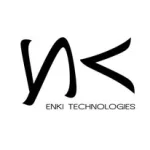It is important to focus on practical, low-hanging fruit projects that enhance business processes rather than highly ambitious “moon shot” initiatives.
Practical initiatives are simpler to manage, less disruptive, and much easier to introduce and incorporate into a business. They are also much more sustainable, given that goal achievement is attainable and the learning curve for employees and management is less steep than a “moon shot” initative.
Three types of AI that each serve different business needs, and can be incorporated into a business with ease:
- Process automation:
- Automating digital and physical tasks, particularly back-office administrative and financial activities
- Cognitive insight:
- Using algorithms for data analysis, predicting customer behavior, detecting fraud, and enhancing analytics.
- Cognitive engagement:
- Focuses on natural language processing, chatbots, and machine learning to engage employees and customers
Many companies are experimenting with projects and combining elements from all three categories listed above.
Four-step framework for integrating AI technologies:
- Understanding technologies:
- Before implementing AI initiatives, companies should comprehend the capabilities and limitations of different technologies. While rule-based expert systems and robotic process automation are transparent but lack learning ability, deep learning excels at learning but operates as a “black box.” The article emphasizes the need for ongoing research and education within IT or innovation groups to make informed choices and overcome challenges like integration, cost, and talent scarcity.
- Creating a portfolio of projects:
- The next step involves systematically evaluating needs and capabilities to develop a prioritized portfolio of AI projects. This includes identifying opportunities in areas where knowledge is valuable but underutilized, addressing bottlenecks, scaling challenges, and inadequate firepower. Companies should assess use cases based on their strategic importance, implementation difficulty, and overall value. The third area focuses on selecting appropriate AI tools for each use case, considering factors like technology suitability and capability.
- Launching pilots:
- To bridge the gap between current and desired AI capabilities, companies should initiate proof-of-concept pilots before full-scale implementation. These pilots are essential to testing technologies, avoiding the injection of projects by executives influenced by vendors, and ensuring the success of the overall AI program. Creating a cognitive center of excellence can help manage multiple pilots, build necessary skills, and transition small-scale projects into broader applications. Business-process redesign is crucial, considering how workflows might be reshaped to optimize the collaboration between humans and AI.
- Scaling up effectively:
- Scaling up cognitive technologies from successful pilots to organization-wide implementation poses challenges that require detailed planning and collaboration between technology experts and business process owners. Unlike entire processes, cognitive technologies often support individual tasks, necessitating integration with existing systems and processes for effective scale-up. Executives in the survey identified integration as a significant challenge in AI initiatives. Before scaling up, companies should assess the feasibility of integration, considering factors like technology availability. It’s crucial to involve the IT organization early, as an end run around IT is unlikely to succeed.
Despite concerns about job displacement, most workers have little to fear from cognitive technologies, as they perform tasks rather than entire jobs. Many managers also prefer an augmentation strategy that integrates human and machine work.



